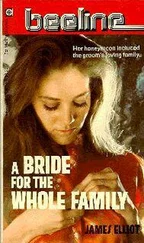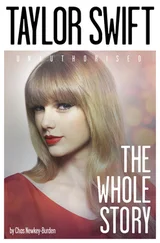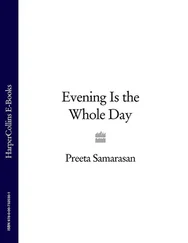Then, when municipal matters bored them, the people began to turn on each other.
It was suggested that Mrs. Dawes shouldn’t walk around like “she’s better than everyone else,” and that Mr. French, the town grocer, stop pretending he was “not good with numbers” when caught out shortchanging us, and that Mrs. Anderson immediately cease overexposing her grandson by shoving photographs of him under everyone’s noses because while he might be only three years old, “we’re all beginning to groan at the sight of him.” Things turned so quickly because Patrick Ackerman was struck down with pneumonia and his second-in-command, Jim Brock, took up the task. Jim was old and bitter and mischievous and read out the most profane, personal, idiotic, and provocative suggestions in an innocent voice, but you could hear him smile, even if you couldn’t see it. Jim was shit-stirring, and because anonymity guarantees honesty (as Oscar Wilde said, “Give a man a mask and he will tell the truth”), everyone in the town was really letting loose.
One suggestion said: Linda Miller, you whore. Stop fucking our men or we’ll organize a lynch mob to cut your great big knockers off.
And there was this one: Maggie Steadman, you old bat. You shouldn’t be allowed to park your car anywhere near our town if you can’t judge the dimensions of things.
And this one: Lionel Potts should stop showing off his money and buying everything in town.
And another: Andrew Christianson, you have no neck! I don’t have a suggestion for fixing it, I just wanted to point it out.
And this: Mrs. Kingston, stop bothering us with jealous concerns about your husband’s fidelity. His breath smells like rotten eggs after they’ve been shat out a runny bottom. You have no worries there.
And this: Geraldine Trent, despite your promises of “I won’t tell a soul,” you are a horrendous gossip and you have betrayed the confidence of just about everyone in town. P.S. Your daughter is a drug addict and a lesbian. But don’t worry, I won’t tell a soul.
People came to dread the reading of the suggestions in case they themselves were to be mentioned. They started to feel vulnerable, exposed, and eyed each other suspiciously in the streets until they spent less time socializing and more time hiding in their homes. I was furious. In the space of a few months, my suggestion box had really made our town the least desirable place to live in New South Wales, or for that matter anywhere at all.
***
Meanwhile, the twins had turned sixteen and celebrated the occasion by quitting school. Bruno and Dave were saving up for guns and planning a move to the city, and Terry wanted to join them. As for me, I’d finally managed to extricate myself from the gang. There was no reason for me to pretend I was doing any good watching over Terry, Bruno had finally reached the point of wanting to “vomit his whole stomach up” at the sight of me, and frankly, I’d had a gutful of the whole stinking lot of them. The benefit I derived from my association with the gang was firmly secured; I was left in peace by my schoolmates. I didn’t wake with dread every day, so now my mind was free to do other things. It’s not until it’s gone that you appreciate how time-consuming dread really is.
I spent every spare millisecond with Caroline. I was fascinated not only by her increasingly succulent body but by her idiosyncrasies. She was obsessed with the idea that people were holding out on her. She relentlessly squeezed their stories out of them; she thought that older people, having lived in many places and cities, had experienced all that life has to offer and she wanted to hear about it. She didn’t care about the children in the town; they didn’t know anything. It was easy to get the adults talking. They seemed ever watchful for a receptacle in which to pour the banked-up untreated sewage of their lives. But after she heard them, she’d incinerate them with an unimpressed look that said very clearly, “Is that all?”
She read too, only she gleaned very different things from books than I did. She obsessed over the lives of the characters, how they ate, dressed, drank, traveled, explored, smoked, fucked, partied, and loved. She longed for exoticism. She wanted to travel the world. She wanted to make love in an igloo. It was comical the way Lionel Potts encouraged his daughter. “One day I’m going to drink champagne hanging upside-down on a trapeze,” she’d say. “Good for you! I know you’ll get there! It’s important to have goals! Think big!” he’d ramble on endlessly. She really set him off.
But Caroline wasn’t as totally discontented with her surroundings as I was. She found beauty in things I just couldn’t see. Tulips in a flowerpot, old people holding hands, an obvious toupee- the littlest thing would send her squealing in delight. And the women of the town adored her. She was always adjusting their hats and picking flowers for them. But when she was alone with me, she was different. I realized that her sweetness, the way she carried on with the people of the town, was her mask. It was a good one, the best kind of mask there is: a true lie. Her mask was a weave of tattered shreds torn from all the beautiful parts of herself.
One morning I went over to Caroline’s and was surprised to see Terry standing outside her house, throwing stones so they landed in the garden bed underneath the front windows.
“What are you doing?” I asked.
“Nothing.”
“Terry Dean! Stop throwing stones in our garden!” Caroline shouted from the upstairs window.
“It’s a free world, Caroline Potts!”
“Not in China!”
“What’s going on?” I asked.
“Nothing. I can throw stones here if I want.”
“I guess.”
Caroline watched from the window. She waved at me. I waved back. Then Terry waved too, only his was a sarcastic wave, if you can imagine it. Caroline waved ironically, which is totally different in tone. I wondered what Terry had against Caroline.
“Let’s go home,” I said.
“In a little while. I want to keep throwing stones.”
“Leave her alone,” I said, annoyed. “She’s my friend.”
“Big deal.” Terry spat, threw down the stones, and walked off. I watched him go. What was that all about? I couldn’t figure it out. Of course, back then I didn’t know anything about young love. I had no idea, for instance, that it was possible to express love by puerile aggression and spite.
Around this time I went up to see Harry, and I didn’t know it then, but it was to be my last visit. He was already in the visitors’ room, waiting and gaping at me expectantly, as if he’d put a whoopee cushion under my mattress at home and he wanted to know if it had gone off yet. When I didn’t say anything, he said, “You’ve been really stirring things up down there!”
“What are you talking about?”
“The suggestion box. They’ve gone crazy, haven’t they?”
“How do you know about that?”
“Oh, you can see quite a lot from up here,” he said, his voice waltzing in three-four time. It wasn’t true. You could see fuck all. “It’s all going to end badly, of course, but you can’t hate yourself for it. That’s why I called you here today. I wanted to tell you not to beat yourself up about it.”
“You didn’t call me.”
“I didn’t?”
“No.”
“Well, I didn’t call the clouds either, but there they are,” he said, pointing to the window. “All I’m saying, Marty, is don’t let it destroy you. Nothing chews at a man’s soul more ravenously than guilt.”
“What do I have to be guilty about?”
Harry shrugged, but it was the most loaded shrug I’d ever seen.
Читать дальше












